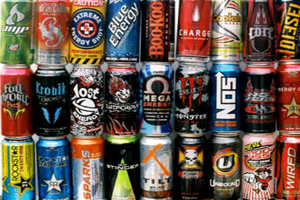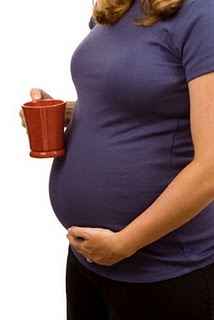October 26th, 2011 by AndrewSchorr in Opinion
No Comments »

 The new book is out about Steve Jobs. You may have already heard that he regretted delaying surgery for months for a type of pancreatic cancer and explored alternatives, including dietary changes. He told his biographer he later came to the conclusion that it was the wrong personal health decision.
The new book is out about Steve Jobs. You may have already heard that he regretted delaying surgery for months for a type of pancreatic cancer and explored alternatives, including dietary changes. He told his biographer he later came to the conclusion that it was the wrong personal health decision.
If you check out social media conversations about health, the value of dietary changes is always a hot topic. Can becoming a vegetarian, for example, arrest the development of cancer or prevent its recurrence?
This week I will participate in a webinar on social media and breast cancer. One other panelists helps run a patient advocacy group. The other is a respected nurse who helps run the breast center at Johns Hopkins. In a preliminary discussion they each noted that Read more »
*This blog post was originally published at Andrew's Blog*
May 19th, 2011 by GarySchwitzer in News, Research
No Comments »

We simply don’t know why more news organizations can’t do an adequate job of explaining the limitations of observational studies – most notably, that they can’t prove cause and effect.
Yes, they can show strong associations. But they can’t prove cause and effect.
NBC Nightly News, as one example recently, inadequately explained the latest suggestion that coffee consumption can lower the risk of prostate cancer. In the anchor lead, Brian Williams framed this as another case of flip-flopping science, lightheartedly talking about what they say about “all those medical studies…if you don’t like the findings, wait for the next study.”
The story seemed puzzled at how the same “lab” 30 years ago reported that coffee was linked to an increase in pancreatic cancer. NBC said the researchers later said they got it wrong. This time – with the prostate cancer link – they say they got it right. Read more »
*This blog post was originally published at Gary Schwitzer's HealthNewsReview Blog*
January 9th, 2011 by admin in Better Health Network, Health Tips
No Comments »

 By Scott Gavura, BScPhm, MBA, RPh for Science-Based Medicine
By Scott Gavura, BScPhm, MBA, RPh for Science-Based Medicine
My stimulant of choice is coffee. I started drinking it in first-year university, and never looked back. A tiny four-cup coffee maker became my reliable companion right through graduate school.
But since I stopped needing to drink a pot at a time, an entirely new category of products has appeared — the energy drink. Targeting students, athletes, and others seeking a mental or physical boost, energy drinks are now an enormous industry: From the first U.S. product sale in 1997, the market size was $4.8 billion by 2008, and continues to grow. (1)
My precious coffee effectively has a single therapeutic ingredient, caffeine. Its pharmacology is well documented, and the physiologic effects are understood. The safety data isn’t too shabby either: it’s probably not harmful and possibly is even beneficial. (I’m talking about oral consumption — no coffee enemas. Please.) In comparison, energy drinks are a bewildering category of products with an array of ingredients including caffeine, amino acids, vitamins, and other “natural” substances and assorted “nutraceuticals,” usually in a sugar-laden vehicle (though sugar-free versions exist). Given many products contain chemicals with pharmacologic effects, understanding the risks, signs of adverse events, and potential implications on drug therapy, are important.
So are energy drinks just candied caffeine delivery systems? Or are these syrupy supplements skirting drug regulations?
The Message
The ads are seductive. Who doesn’t want more energy? Who doesn’t want their mind and body “vitalized?” And don’t we have time-starved lifestyles? Initially envisioned for athletes, energy drinks are now marketed mainly towards teens and young adults, where uptake has been dramatic. Cross-promotion with extreme sporting events, and creating names like “Full Throttle,” “Rockstar,” and even “Cocaine” burnish the “extreme” image. The market is now segmented further with products targeted at women, vegetarians, diabetics, celiacs, and more. However you identify yourself, there’s probably an energy drink developed with you in mind. Read more »
*This blog post was originally published at Science-Based Medicine*
October 8th, 2010 by RyanDuBosar in Better Health Network, Humor, News, Quackery Exposed, Research
No Comments »

 Nurses and doctors depend on coffee to perform their jobs the most of any profession, reports a survey.
Nurses and doctors depend on coffee to perform their jobs the most of any profession, reports a survey.
Nurses ranked first and doctors second when asked if they needed coffee to get through their day. The rest of the coffee-fueled careers were a mixed bag of white collar and blue collar positions. Among other findings:
— 48 percent of those in the Northeast said they were less productive without coffee, compared to 34 percent of Midwesterners.
— 40 percent of those aged 18 to 24 said they can’t concentrate as well without coffee.
— 37 percent said they drink two or more cups a day.
NOTE: The study was funded by CareerBuilder and Dunkin’ Donuts.

*This blog post was originally published at ACP Internist*
July 24th, 2010 by Toni Brayer, M.D. in Better Health Network, Health Tips, News, Opinion, Research
No Comments »

 The American College of Obstetricians and Gynecologists has issued a statement that moderate caffeine consumption (<200mg/day — about a cup of coffee) does not increase a woman’s risk for miscarriage or preterm birth. The review of recent studies was published in Obstetrics and Gynecology and should reassure women about drinking coffee when pregnant.
The American College of Obstetricians and Gynecologists has issued a statement that moderate caffeine consumption (<200mg/day — about a cup of coffee) does not increase a woman’s risk for miscarriage or preterm birth. The review of recent studies was published in Obstetrics and Gynecology and should reassure women about drinking coffee when pregnant.
Caffeine does cross the placenta, but there was no difference found between the moms who drank caffeine while pregnant and those who did not.
If you wonder how much caffeine is in certain drinks or foods, click here.
One fact the study did not mention is that many women have a natural aversion to coffee when they are pregnant. Maybe nature knows best.
*This blog post was originally published at EverythingHealth*
 The new book is out about Steve Jobs. You may have already heard that he regretted delaying surgery for months for a type of pancreatic cancer and explored alternatives, including dietary changes. He told his biographer he later came to the conclusion that it was the wrong personal health decision.
The new book is out about Steve Jobs. You may have already heard that he regretted delaying surgery for months for a type of pancreatic cancer and explored alternatives, including dietary changes. He told his biographer he later came to the conclusion that it was the wrong personal health decision.








 The American College of Obstetricians and Gynecologists has issued a statement that moderate caffeine consumption (<200mg/day — about a cup of coffee) does not increase a woman’s risk for miscarriage or preterm birth. The review of recent studies was published in Obstetrics and Gynecology and should reassure women about drinking coffee when pregnant.
The American College of Obstetricians and Gynecologists has issued a statement that moderate caffeine consumption (<200mg/day — about a cup of coffee) does not increase a woman’s risk for miscarriage or preterm birth. The review of recent studies was published in Obstetrics and Gynecology and should reassure women about drinking coffee when pregnant.







